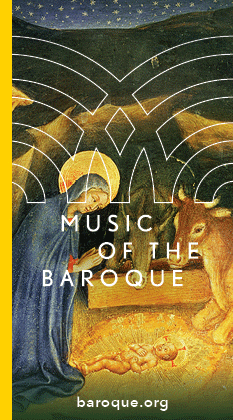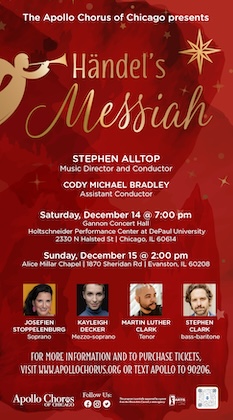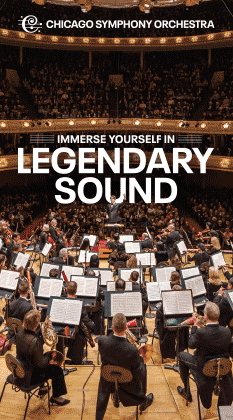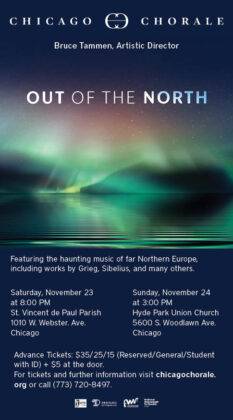A retooled Pacifica Quartet returns to Mandel Hall with a world premiere
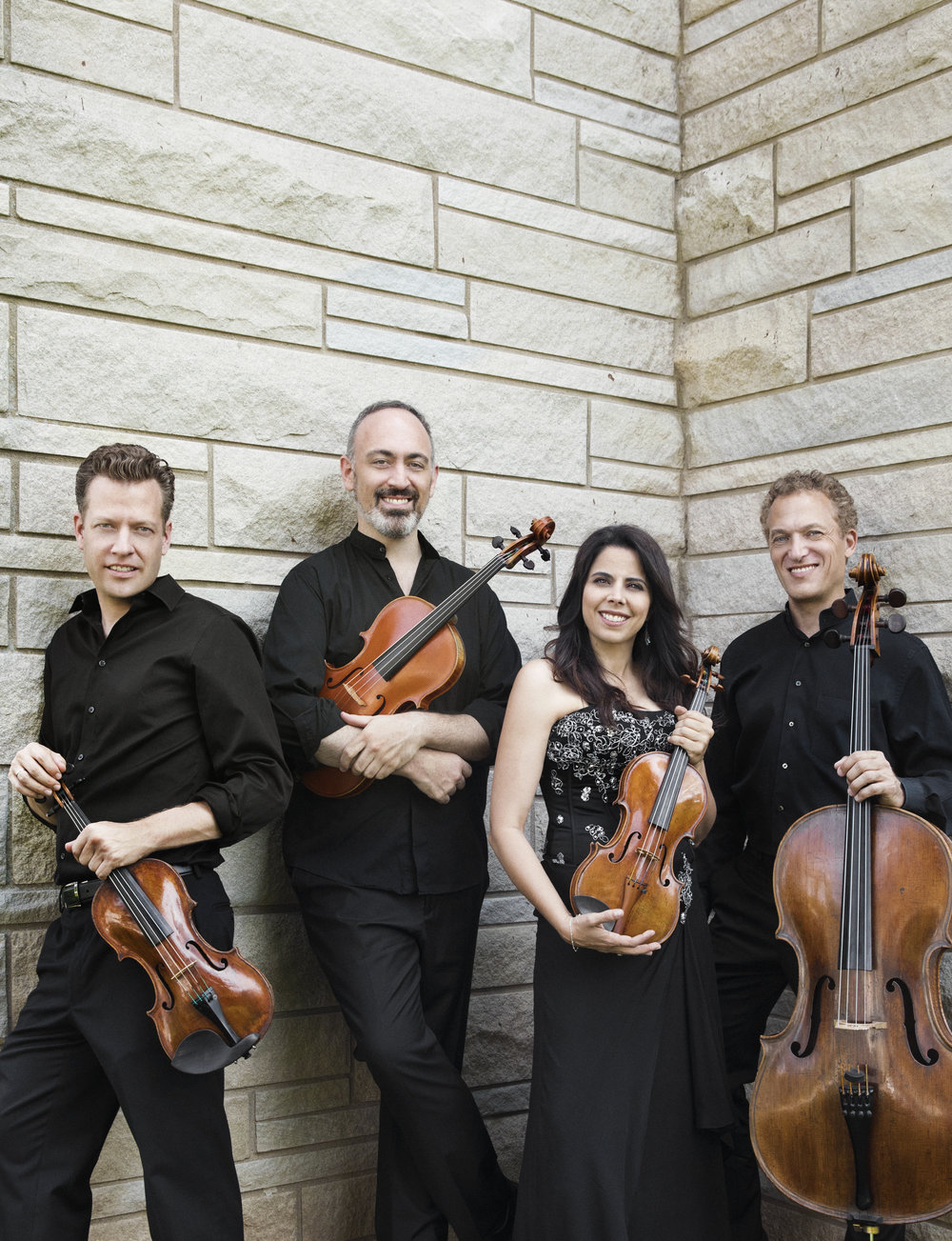
The Pacifica Quartet returned to the University of Chicago Presents series Friday night, their first Hyde Park stand in two years.
As former ensemble in residence for 17 years, it was right and fitting that this excellent chamber ensemble be featured in the 75th anniversary season of the UC Presents series. Yet it was a different lineup that faced the audience at Mandel Hall with two new players having joined Pacifica in the interim.
Beethoven’s String Quartet in B flat, Op. 18, no.6, opened the evening and made a worthy calling card for evaluating the present artistic health of Pacifica, which is currently marking its 25th season.
Charismatic first violinist Simin Ganatra remains primus inter pares of the ensemble with her pure tone, ebullient stage persona, and sterling virtuosity. Cellist Brandon Vamos, Ganatra’s husband, continues to anchor the group at the low end superbly with secure artistry and a rich burnished tone.
The two new members are second violinist Austin Hartman and violist Mark Holloway (succeeding Sibbi Bernhardsson and Masumi Per Rostad, respectively).
Hartman and Holloway are clearly fine musicians and appear equipped to fill the middle chairs of Pacifica with distinction (one unfortunate slip by Holloway in the opening movement of the Beethoven apart). At times one wanted a bit more personality and sonic presence from the new members—Hartman, especially, needs to play out more—but that will likely come in time as the new Pacificans get acclimated to their colleagues and vice versa.
The refitted group remains an estimable Beethoven band, as shown in the final work of the composer’s first set of string quartets. The galumphing good humor was vitally conveyed with Ganatra’s silvery tone and technical facility as assured as ever, all the players batting Beethoven’s themes back and forth with humor and elan.
Led by Ganatra, the Adagio was rich of tone and effectively rendered, if not quite exploring the unsettled landscape of the middle section. The cross-rhythms of the ensuing Scherzo were aptly rambunctious with a nice sidearm quality to the quirky trio.
The distinctive final movement points the way forward for the depth and complexities of Beethoven’s quartets to come. Titled “La Malinconia,” the opening theme offers a portrait of deep, almost immobile grief separated by harsh chords. This bipolar alternation segues into a rustic tune, as ditzy and lighthearted as the previous theme was bleak and despairing.
At times the stark edges and wide contrasts of this movement felt a bit too ironed out and comfortable for their own good. Yet for the most part,the Pacifica members brought dynamic energy and full commitment to the performance; the tearaway acceleration in the final bars by Ganatra and colleagues proved exciting by any measure.
The centerpiece of the evening was the world premiere of David Dzubay’s String Quartet No. 2, written for Pacifica Quartet, his colleagues at the Jacobs School of Music at Indiana University in Bloomington. The work is subtitled “Oceanic” as a nod to the Pacifica’s Western roots, and the amiable composer was on hand to introduce his own work.
Cast in five movements running 23 minutes, Dzubay’s quartet draws on various watery inspirations, often malign or threatening in nature. “Full Fathom Five” opens the quartet in mysterious quiet interrupted by a series of swelling chords. A halting motif leads into a more syncopated jazz-like section. In “Bergy Bits and Growlers” we get an undulating motif for cello that passes to the other instruments.The music ultimately accelerates to a frenzied pitch before abruptly dropping down to a quiet dynamic.
And so it goes with a mix of brief atmospheric fragments, dizzying contrasts, and various unorthodox string devices characterizing this new work.
Dzubay is an interesting composer and his quartet has undeniably compelling moments. Yet there is a kind of short-breathed, episodic quality to his writing that fails to cohere. At times he seems to step on the throat of his own song—as in the central movement, “Lost Boy Cave,” where a promising lyrical idea is dismissed by chaotic ephemera just as it starts to get interesting.
Ultimately, Dzubay’s Second Quartet presents something of a Joseph Cornell box for displaying a compendium of alternative string effects—a ricocheting pizzicato here, a swooning glissando there, whispered vocalise over there—which don’t really add up to a satisfying whole.
Some wayward intonation apart, the Pacifica gave their friend’s premiere their all, playing with dedication and conviction. Dzubay, who will be back at UC in June to lead the Grossman Ensemble in another premiere of his music, was warmly applauded by the audience.
Music of Felix Mendelssohn closed the evening, with his Quartet No. 3 in D major, Op. 44, no. 1.
Esteemed as the Pacifica Quartet is for its Beethoven and Shostakovich, Mendelssohn has always seemed the most ideal repertoire for the group—the youthful vivacity fits the group’s slender gleam and quicksilver style like a well-tailored glove.
And so it proved again on Friday with Ganatra and colleagues delivering a polished and spirited performance. The outer movements went with exceptional energy and elan, fully conveying the composer’s singular brand of joyous exuberance. The middle movements were finer still, with the players bringing out the lyric grace of the Menuetto delightfully.
No encore was offered but it was a happy enough occasion to have the Pacifica Quartet back at their old Hyde Park venue. Let’s hope it’s not two years before their next appearance.
Violinist Rachel Barton Pine and harpsichordist Jory Vinikour perform music of Bach 7:30 p.m. April 26 at the Logan Center. chicagopresents.uchicago.edu
Posted in Uncategorized
